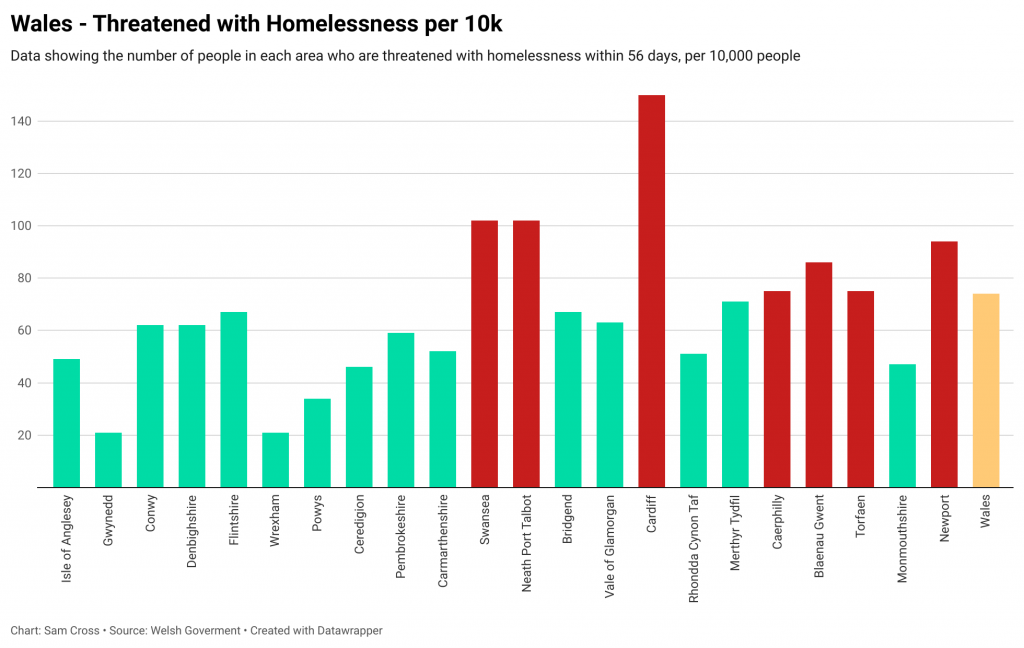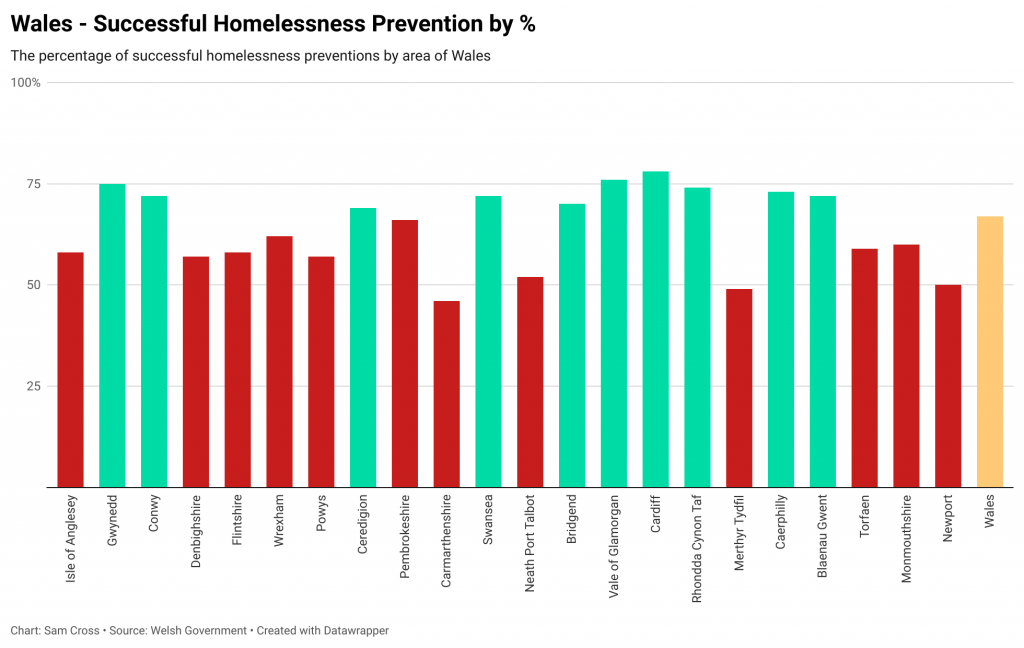Shelter Cymru works to end homelessness by directly helping those affected and informing the public about the housing emergency

More than 1 million people in Wales are affected by the housing crisis in Wales, Shelter Cymru claimed at a discussion on Tuesday at Cardiff University.
Within this figure, there were almost 7,000 people living in temporary accommodation in Wales at the end of September, including over 1,700 children, and over 120 people sleeping rough across the country too.
Shelter Cymru campaigns manager Rob Simkins said people can find themselves homeless for a variety of reasons, including rent hikes, job losses and stagnating wages, speaking at an event held by Cardiff University’s Help for Homeless student society.
Nobody makes themselves intentionally homeless
Rob Simkins
Rob explained, “Nobody makes themselves intentionally homeless.” People can find themselves homeless for personal reasons like relationship breakdowns or job losses, but there are also systemic issues.
National Insurance and Council Tax increases, but cuts in Universal Credit. All of these issues can contribute to rising levels of homelessness and all of which are issues within the system he said.
The issue is particularly prevalent in Cardiff where the risk of homelessness is twice that of the national average, according to statistics from the Welsh government.

From the same data, we see that Merthyr Tydfil and Carmarthenshire are the least successful at preventing homelessness, with both areas failing to reach a 50% prevention rate.

But homeless people aren’t just rough sleepers. The hidden homeless include those sofa-surfing, staying with friends and families, or sleeping on public transport. Shelter Cymru also offers support to people in these situations.
PhD student at Cardiff University, 29-year-old Faisal Farooq reflects that homeless people are stuck in an inescapable cycle. He said, “There’s a psychological aspect to it, homelessness is causing distress and even when they receive sheltered support, the worry of being homeless in the future comes crawling back.”
Faisal compares the housing situation for the homeless in South Asian countries to the United Kingdom. He says, “South Asian countries have slums which are densely populated compared to the social housing that the government provides here. Homelessness is a temporary situation in the UK, however, it’s a permanent situation in South Asian countries for the underprivileged in society.”

Rob explained there are four keys ways to raise awareness of homelessness issues: campaigning, donating, fundraising and volunteering.
He said, “Every little helps and there’s something for everyone to get involved with.” Students can volunteer their time if they want to do more.
The Help for Homeless society offers opportunities to students to get involved with projects locally, as well as run their own fundraising events.
President Bethan Batson said every year they host a Big Sleepout, in which all proceeds raised go to charity.
This weekend the team will have a collection at a University event where they will collect tinned goods and toiletries, and also fresh food which will go to the local community fridge for disadvantaged people to take away.
It is possible to end homelessness
Rob Simkins
Rob said the way to end homelessness is by having more homes where people need them. He added, “Everyone deserves a good home… It is possible to end homelessness.”
For more information about Shelter Cymru’s work or to receive help or guidance yourself about housing issues, you can contact the team via phone, web chat or at an advice centre.
Follow the Twitter thread to read more about the talk:
Preventing evictions
What Welsh local authorities do to help prevent evictions:
Caerphilly County Borough Council
Financial advice (covering welfare benefits, household costs and debt support)
Assistance claiming Housing Benefits and other funding
Vale of Glamorgan Council (the Money Advice Team)
Undertaking benefit checks and assistance with applications
Helping tenants access statutory and charitable funds
Budgeting advice
Pre-tenancy money advice
